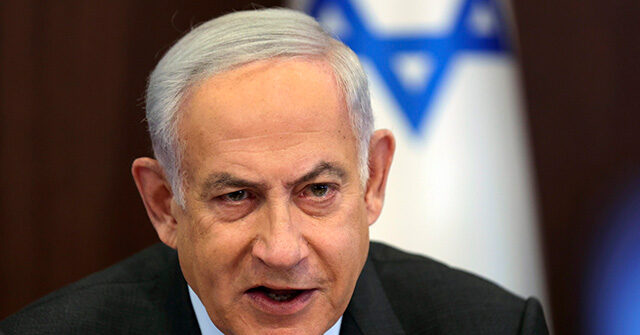Israeli Prime Minister Benjamin Netanyahu recently faced a serious attack when a drone, purportedly launched by Hezbollah, struck his private residence in Caesarea. Reports indicate that the drone successfully evaded Israel’s air defense systems and impacted the home, resulting in damage but fortunately causing no injuries as neither Netanyahu nor his wife, Sara, were present at the time of the attack. This incident is being treated as a significant escalation, with potential implications for Israeli leadership and national security if the assassination attempt had been successful.
The Times of Israel confirmed that the drone was fired from Lebanese territory, confirming some degree of operational capacity on Hezbollah’s part. The explosion resulted in cracks to a bedroom window and displaced shards of glass into the family’s pool and yard, indicating the attack’s real danger level. However, the reinforced windows and other protective measures in the residence prevented further damage, showcasing a level of preparation against such threats. The military censor initially restricted images of the damage to ensure operational security and manage public response to the incident.
Hezbollah quickly took credit for the drone strike, and during a press conference, they hinted at potential further aggression from Israel. In light of this attempted attack, Netanyahu characterized the operation as a “grave mistake” by Iran, suggesting that the Iranian leadership, as Hezbollah’s backer, could face retaliation from Israel. The attack established a heightened state of tension in the region and is understood to be a calculated move amid Israel’s ongoing conflicts and threats from various adversaries, including Iran.
Responses from global leaders reflected the severity of the situation, with many expressing solidarity with Netanyahu. Former President Donald Trump reached out following the attack, but it was notable that U.S. President Joe Biden and Vice President Kamala Harris did not personally contact Netanyahu during this urgent time. This fact could indicate a potential shift in diplomatic engagement or priorities as situations escalate in the Middle East.
Netanyahu’s warning to Iran suggests a possible military response, which might focus on the Iranian leadership in light of Iran’s previous ballistic missile assault on Israel on October 1. The ongoing cycle of violence and retaliation raises the stakes not only for Israel but for regional stability overall. Experts speculate that Hezbollah’s actions could provoke larger conflicts, as Israel assesses how to respond to threats from both the non-state actors like Hezbollah and state threats from nations like Iran.
As political dynamics shift in the Middle East, Netanyahu’s government faces a critical moment that could redefine Israel’s military strategies and foreign relations. Given the response from Israeli leadership and the various international communications, this incident serves as a reminder of the fragility of peace in the region, as well as the ongoing rivalries and the threat of further escalation in response to provocative actions by militant groups. The aftermath of the drone attack will likely influence Israel’s strategic calculations and regional diplomacy moving forward.

